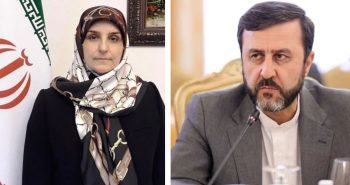The 58th Session of the UN Commission on Human Rights begins on 18 March. The Commission’s purpose is to promote human rights and respect for the United Nations. Its manipulation for narrow political purposes detracts from these goals.
Analysis: The Commission on Human Rights is the United Nations’ most prominent forum for discussions of human rights. Unfortunately, the Commission’s purpose has been hijacked by Arab members to stigmatize Israel, condemning her disproportionately and in a biased manner.
In recent years, the Commission has annually passed five resolutions condemning Israel. By contrast, each of the following countries/regions has been the subject of only one resolution: Afghanistan, Burundi, Congo, Cuba, Iran, Iraq, Myanmar, Russia/Chechnya, Sierra Leone, Southeast Europe and Sudan. The disproportionate focus is aggravated by allocating a separate agenda item to criticism of Israel, while all other countries are discussed collectively under one item.
Even using the Palestinian, Lebanese and Syrian maximalist figures for the effected populations of “occupied Arab territories,” the five anti-Israel resolutions address the human rights of 3.5 million people. The combined effected populations for the other 12 resolutions are 315 million. The Commission spends approximately 25% of its country-specific discussions on the 3.5m people of the “occupied Arab territories” and 75% of its time on the other 315m. In other words (and figures), the Commission pays 30 times more attention per person to the Arab-Israeli conflict than to other conflicts.
The resolutions are also unbalanced. One resolution accuses Israel of an extensive list of human rights violations, including “extrajudicial killings, closures, collective punishments, settlements and arbitrary detentions.” Condemnation of Palestinian violence against Israelis is conspicuously absent. The only appeals “to desist from all forms of violations of human rights” are directed at Israel, ignoring Palestinian repeated and escalating acts of terrorism and wanton killings of Israeli civilians. In another resolution, Israeli actions against Hizbollah are condemned, while Hizbollah attacks on Israeli civilians are ignored.
This year’s Commission could represent a turn for the worse. Arab members are seeking consensus adoption of the five resolutions condemning Israel. In previous years, the United States called for a vote on these resolutions, and some European, Latin American and African member states would register their non-support by abstaining. This year, in the absence of the United States, the responsibility to call for a vote will rest upon Canada, the United Kingdom and Germany.
The Commission on Human Rights should address the Arab-Israeli conflict with a single, impartial and objective resolution and in a proportionate manner. Israel is not above fair criticism, but there should be no consensus to discriminate against her.





